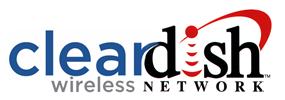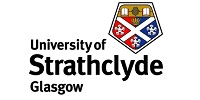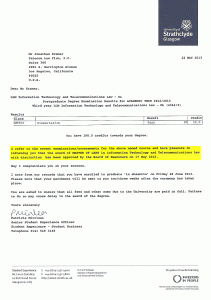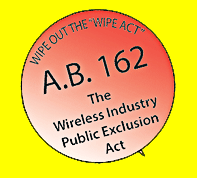
Sprint today filed suit in the Court of Chancery in Delaware to block the sale of Clearwire to to Dish Network. The 45-page verified complaint aims to not only stop the sale, but to ding Dish for tortious interference with Sprint’s rights under its merger agreement with Clearwire.
Most telling in the complaint is Sprint’s assertion that “DISH wants spectrum.” (para. 3.) How very true of both suitors.
Sprint’s complaint is summarized in the press release below.
Below the press release is the “Nature of the Action” section of the complaint. Below that is a link to the 45-page complaint.
As of the initial posting of this message, neither Dish nor Clearwire has yet released any public comments on Sprint’s complaint. I’m sure Dish’s reply will be most entertaining.
June 17, 2013
Sprint Files Lawsuit Against DISH Network Corporation and Clearwire Corporation Citing the Illegality of the DISH Tender Offer for Clearwire
If Completed, Tender Offer Would Violate Delaware Corporate Law, Sprint’s Bargained-For Rights and the Rights of the Strategic Investors Under the Charter and Equity Holders Agreement
Lawsuit Contends that the Tender Offer is Structurally and Actionably Coercive
OVERLAND PARK, Kan. (BUSINESS WIRE), June 17, 2013 – Sprint (NYSE:S) announced today that it has filed a complaint in the Delaware Court of Chancery against DISH Network Corporation (NASDAQ:DISH) and Clearwire Corporation (NASDAQ: CLWR) asking the Court to prevent the consummation of the DISH tender offer for Clearwire. Sprint believes the transaction violates Delaware law and the rights of both Sprint and Clearwire’s other strategic investors under Clearwire’s charter and under the Equity Holders Agreement (“EHA”). In addition to seeking to enjoin the tender offer, Sprint’s lawsuit seeks to rescind certain parts of the tender offer agreement and seeks declaratory, injunctive, compensatory and other relief.
In its complaint, Sprint outlines why DISH’s tender offer violates the rights of Sprint and other Clearwire stockholders under Clearwire’s governing documents and Delaware law. It also details how DISH has repeatedly attempted to fool Clearwire’s shareholders into believing its proposal was actionable in an effort to acquire Clearwire’s spectrum and to obstruct Sprint’s transaction with Clearwire. Among the points the suit makes:
- Sprint and the strategic investors invested billions of dollars in cash and assets to form Clearwire. They entered into a shareholders agreement that established their governance rights (the Equity Holders Agreement (EHA)) as to nominating and electing directors, amending the charter and bylaws, issuance of stock, and other governance matters.
- Under Clearwire’s charter and the EHA, the DISH Tender Offer (together with the Investors Rights Agreement (IRA) and a related Note Purchase Agreement (the “NPA”)), cannot be completed without the approval of holders of at least 75% of Clearwire’s outstanding voting securities, nor without the approval of Comcast Corp., neither of which approvals have been obtained. Completion of the tender offer without such approvals is unlawful.
- DISH’s Tender Offer, if completed, would violate Delaware corporate law and Sprint’s and the strategic investors rights under the Charter and EHA by vesting DISH with a veto power over fundamental corporate events that Delaware law places in the control of the directors or shareholders and that the EHA details how many directors and shareholders are required for action.
- The IRA requires Clearwire to place and maintain a number of DISH designees on its board of directors in breach of the provisions in the EHA permitting Sprint to nominate 7 directors, the Significant Investors Group to nominate several other directors, and the nominating committee to nominate the remainder.
- The IRA violates the Charter by purporting to grant DISH pre-emptive rights that are explicitly prohibited by the Charter.
- The DISH Tender Offer is unlawfully coercive because it threatens to leave non-tendering shareholders holding shares in a company subject to governance deadlocks or substantial damage awards to DISH if Clearwire is unable to deliver on the unenforceable promises set forth in the IRA and NPA.
- Sprint is asking for Clearwire’s Charter and the EHA to be enforced by not letting Clearwire sign the IRA or the NPA and by enjoining the tender offer.
Here’s the “Nature of the Action” section of Sprint’s complaint:
1. This action seeks declaratory, injunctive, compensatory and other relief arising from a tender offer launched by DISH for the stock of Clearwire (the “DISH Tender Offer”). The DISH Tender Offer is structurally and actionably coercive and is conditioned upon an agreement with Clearwire that is set to be approved by the Clearwire board of directors (the “Clearwire Board”) that violates and converts the rights of Sprint and other Clearwire stockholders under Clearwire’s governing documents and Delaware law. This action also seeks compensatory relief for DISH’s tortious interference with Clearwire’s performance of its merger agreement with Sprint.
2. Sprint has been a substantial stockholder of Clearwire since its formation in 2008. After lengthy negotiations, on December 17, 2012, Sprint and Clearwire announced a merger agreement whereby Sprint would acquire the outstanding Clearwire stock that it does not already own (the “Sprint Merger Agreement”). Sprint and Clearwire also entered into a financing agreement under which Sprint would provide Clearwire with much-needed financing (the “Interim Financing Agreement”).
3. DISH wants spectrum. Clearwire has spectrum but has struggled financially. Before entering into the Sprint Merger Agreement, Clearwire sought to engage DISH in discussions, but DISH refused to negotiate and did not make a meaningful proposal. After the announcement of the Sprint Merger Agreement, however, DISH feared that by solving Clearwire’s financial problems, a combination of Sprint and Clearwire would eliminate DISH’s negotiating leverage to acquire spectrum on the cheap, so DISH embarked on a plan to tank the merger.
4. Because the Sprint Merger Agreement was conditioned on the approval of a majority of Clearwire’s minority shares, DISH’s strategy focused on fooling Clearwire’s minority stockholders into believing they might obtain a better price from a transaction with DISH. Thus, starting in late December 2012, DISH began making a series of public proposals to make tender offers for a minority position in Clearwire at prices higher than that offered under the Sprint Merger Agreement – in exchange for Clearwire selling DISH key spectrum assets at a bargain price. DISH also insisted that it obtain substantial governance rights from Clearwire. The Clearwire Board rightly recognized that its fiduciary duties did not permit it to sell key assets at a discount in exchange for a tender offer that would benefit only a minority of stockholders, and also rightly recognized that it could not grant DISH the governance rights DISH sought without violating the rights of Sprint and other Clearwire stockholders under Clearwire’s governing documents and Delaware law. So Clearwire repeatedly rejected DISH’s proposals as “not actionable.” DISH appeared to give up on Clearwire and instead turned its attention to making a public proposal to acquire Sprint. Nevertheless, DISH’s repeated public proposals to Clearwire had fooled many Clearwire minority stockholders into believing a higher price might be available from DISH.
5. On May 29, 2013, just two days before Clearwire stockholders were set to vote on Sprint’s proposed merger with Clearwire (the “Sprint-Clearwire Merger”), DISH re-appeared with a publicly announced tender offer at a higher price – the DISH Tender Offer. The DISH Tender Offer was no longer conditioned upon a purchase of spectrum at a bargain price, but was still conditioned upon obtaining governance rights that Clearwire had previously recognized it had no power or right to give. Nevertheless, because DISH is successfully fooling Clearwire’s minority stockholders into voting against the Sprint-Clearwire Merger, leaving Clearwire with no solution to its looming financial crisis, the Clearwire Board panicked and its changed position.
6. Thus, Clearwire reversed course and intends to execute agreements containing the very same governance provisions that it previously recognized it could not legally grant. As described further below, Clearwire is set to enter into an Investor Rights Agreement (the “IRA”) and a Note Purchase Agreement (the “NPA”) with DISH that violate Sprint’s rights under an Equityholders’ Agreement entered into by Sprint, Clearwire and others in 2008 (the “EHA”) and also violate Delaware law and Clearwire’s governing documents – facts previously acknowledged by the Clearwire Board and communicated to DISH.
7. Execution and delivery of the IRA is a condition to the DISH Tender Offer. The IRA purports to grant DISH governance rights, including the purported right to force the Clearwire Board to nominate a slate of directors with guaranteed DISH representation, the purported right to veto amendments to Clearwire’s charter (the “Clearwire Charter”) and bylaws, the purported right to veto any change of control of Clearwire, and purported preemptive rights over any new issuance of Clearwire securities, with certain exceptions. The IRA is invalid and unenforceable because it violates Sprint’s rights under Delaware law and the EHA, which is incorporated into the Clearwire Charter.
8. The NPA is also invalid and unenforceable. Clearwire intends to enter into the NPA in connection with the DISH Tender Offer. The NPA purports to compel Clearwire to issue either exchangeable or non-exchangeable notes, with a structure designed to coerce Sprint to vote to amend the Clearwire Charter. The issuance of exchangeable notes by Clearwire would not be permitted without an amendment to the Clearwire Charter, which could not be accomplished without Sprint’s approval. The nonexchangeable notes (that Clearwire would issue to DISH if Sprint does not approve an amendment to the Clearwire Charter) pay an enormous 12% interest rate, require a commitment fee payable in cash, and carry priority in bankruptcy. Combined with DISH’s other holdings of Clearwire debt, the non-exchangeable notes would give DISH the ability to drive Clearwire into bankruptcy so DISH can take control of Clearwire’s spectrum assets. Thus, not only are Sprint and the other parties to the EHA being deprived of their preemptive rights under the EHA, but Sprint is also being coerced into amending the Clearwire Charter to allow for the issuance of more Clearwire shares in order to avoid the issuance of the non-exchangeable notes.
9. All that is bad enough. But the DISH Tender Offer is also structured to coerce Clearwire’s minority stockholders, to the detriment of Sprint, to tender their stock to DISH or else be left holding stock in a corporation that will be handicapped by unlawful corporate governance restrictions, onerous debt provisions, and potentially be subject to massive money damages claims payable to DISH – an entity which has everything to gain from a failure of Clearwire. Because Sprint owns a majority of Clearwire stock and, as stated, is not a seller, the DISH Tender Offer cannot be followed by a back-end merger with the same consideration and therefore is structurally coercive.
10. As a result, this action seeks equitable relief to prevent consummation of the DISH Tender Offer, and to enjoin or rescind the execution and delivery of the IRA and the NPA.
11. This action also seeks compensatory and other relief to remedy DISH’s wrongful interference with Sprint’s contractual rights, economic advantage and business relations. DISH intentionally and improperly interfered with the performance of the Sprint Merger Agreement and the Interim Financing Agreement between Clearwire and Sprint, thereby preventing performance, causing performance to be more expensive and burdensome, and ultimately threatening the wrongful termination of the Sprint Merger Agreement.
12. Defendants’ acts already have injured Sprint and Sprint’s rights which will further be irreparably injured without immediate relief from this Court.
Click here to download Sprint’s Complaint.
* * *
Separately but related to the Clearwire deal, DISH Network announced earlier today the expiration last Friday of the mandatory waiting period under the Hart-Scott-Rodino Antitrust Improvements Act (“HSR”) in connection with the tender offer by DISH Acquisition Holding Corporation, a wholly-owned subsidiary of DISH, to purchase all outstanding shares of Class A Common Stock of Clearwire Corporation , including any shares of Class A Common Stock issued in respect of outstanding shares of Class B Common Stock, for $4.40 per share.








 (916) 319-2035
(916) 319-2035
